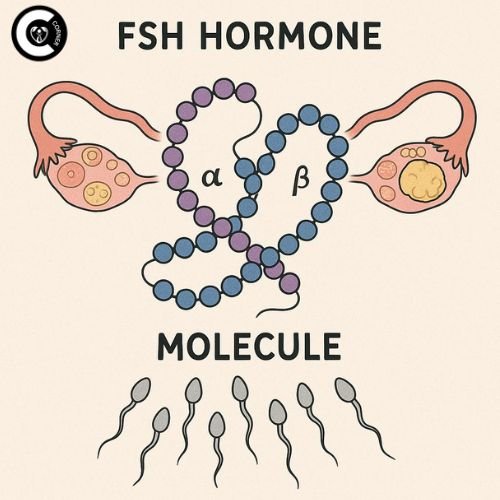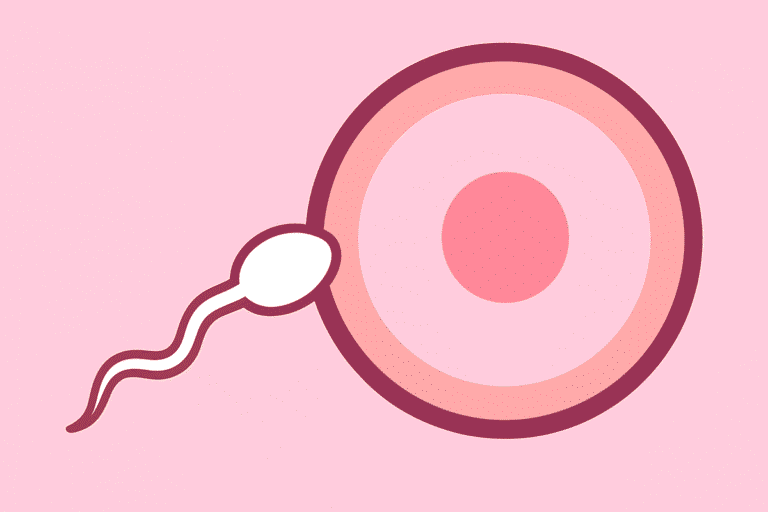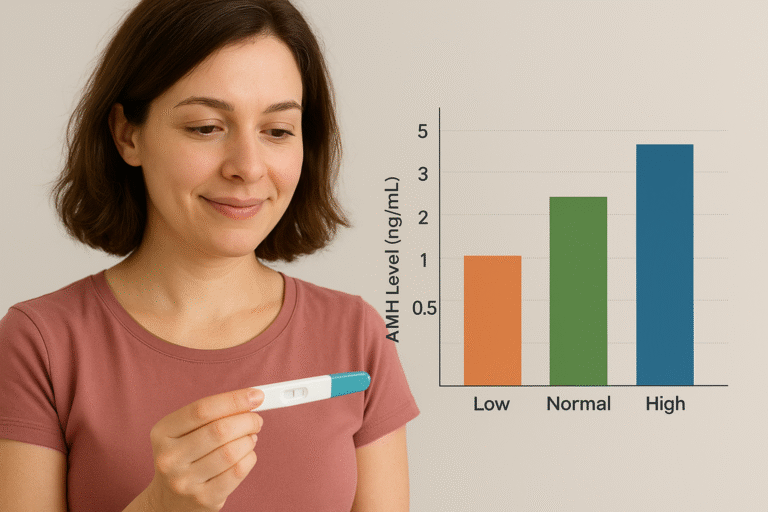Follicle-stimulating hormone FSH is a vital aspect of reproductive health, but most people don’t know what it does until they have difficulties getting pregnant. The pituitary gland makes this hormone, which is very important for reproduction in both men and women. FSH helps ovarian follicles grow, which is where women’s eggs develop. It helps males make sperm. If Follicle-stimulating hormone levels are not right, it could make it hard to get pregnant by messing up ovulation, menstrual cycles, or sperm health. The first thing you need to do to deal with FSH’s prospective consequences on your reproductive journey is to learn how it works.
The pituitary gland is a small portion of the endocrine system that lies close to the base of the brain. It lets out FSH. The amount of Follicle-stimulating hormone in a woman’s body changes during her menstrual cycle. Follicle-stimulating hormone levels go up during the follicular phase, which is the first half of the cycle. This activates follicles in the ovaries. Follicles contain eggs, and as they grow, they produce estrogen. This estrogen prompts the pituitary gland to create less Follicle-stimulating hormone, which keeps the hormones in check. If this feedback loop doesn’t work, FSH levels can rise or fall, which can make your periods or ovulation cycles erratic.
Men have a different but just as vital job for FSH. It binds to receptors in the testes, which tells Sertoli cells to assist the sperm to develop. Not having enough Follicle-stimulating hormone could lower sperm production, which could hurt both the amount and quality of sperm. Men with high or low Follicle-stimulating hormone levels often have difficulties that aren’t always clear, like damage to the testicles or hormonal illnesses. It is vital for reproductive health to have balanced FSH levels. If they are not, it could be a sign that you might have problems getting pregnant.
High FSH Levels: What Do They Mean?
Higher levels of Follicle-stimulating hormone in women are often associated to a smaller ovarian reserve, which implies there are fewer healthy eggs. Women who are 35 or older are more likely to have this happen, but younger women with conditions like premature ovarian insufficiency (POI) can also have it happen. If your FSH levels are high, it could signal that your ovaries aren’t reacting well to hormones. To try to get the follicles to grow, the pituitary gland may have to make more FSH. Having high Follicle-stimulating hormone doesn’t mean you can’t get pregnant, but it does suggest that your chances are decreased.
Men with high levels of FSH frequently have testicles that aren’t working right. Causes range from genetic defects such as Klinefelter syndrome to physical injury, infections, or chemotherapy. The pituitary gland releases extra Follicle-stimulating hormone to make up for the fact that the testes don’t create enough sperm or testosterone. Testing Follicle-stimulating hormone and other hormones like testosterone and LH gives a better idea of how healthy a man’s reproductive system is.
Low FSH Levels: Causes and Consequences
Low FSH levels are less common, but they are just as hazardous. Not enough Follicle-stimulating hormone in women can prohibit follicles from developing, which can lead to irregular ovulation or no ovulation at all. Some of the factors that can cause it are difficulties with the pituitary gland, too much stress, eating disorders, or being overweight. Low levels of FSH in men are often associated to less sperm being made. This could be because the hypothalamus isn’t working right and isn’t sending out hormone signals. The best strategy to deal with low Follicle-stimulating hormone is usually to treat the underlying condition, which may include managing stress or fixing problems with your nutrition.
Recognizing Symptoms of FSH Imbalance
Women who have unbalanced FSH may have periods that are irregular or don’t happen at all, hot flashes, vaginal dryness, or trouble getting pregnant. Even in younger women, these symptoms are often the same as those of perimenopause. Men could notice a lower sperm count, a lack of sex drive, or problems getting an erection. These signs don’t usually signify that Follicle-stimulating hormone is broken, but a doctor should look into them. Early testing can help discover hormone imbalances before they have a substantial effect on your ability to get pregnant.
Testing Follicle-stimulating Hormone Levels: What to Expect
A simple blood test is part of FSH testing. Timing is highly essential for women. When hormone levels are at their lowest, on day 3 of the menstrual cycle, the test is most accurate. We look at the results along with the levels of estrogen and LH. A high level of FSH and a low amount of estrogen usually suggest that the ovaries don’t have much reserve. Men can get tested at any time, although testosterone and semen testing are the most common ways to look at the results. You might need to have more tests done, like pelvic ultrasounds or pituitary MRI scans, if your FSH levels are not normal.
Also Read: How To Stop Hot Flashes
Treatment Options for FSH-Related Infertility
Your FSH levels will determine what kind of medical care you get. Women with high FSH can use medicines like clomiphene citrate or injectable FSH to start ovulation. This can assist the follicles to grow. If you have problems getting pregnant, in vitro fertilization (IVF) can potentially be an option. People with low FSH may need hormone replacement therapy (HRT) or surgery to correct abnormalities with the pituitary gland, like tumors. Men who have low sperm counts because their FSH levels are out of whack may benefit from hormone therapy or assisted reproductive techniques like ICSI (intracytoplasmic sperm injection).
You can also maintain your hormones in balance by making changes to your daily routine. Eating a lot of foods that are high in antioxidants, including berries, almonds, and leafy greens, is helpful for the health of sperm and eggs. Yoga, meditation, or therapy can help alleviate stress, which can help keep cortisol levels in check. Cortisol levels can impact FSH production. Not smoking, consuming too much alcohol, or being around harmful chemicals like BPA also helps keep your fertility protected. Changes to your lifestyle alone might not be enough to cure significant imbalances, but they work well alongside medical treatments.
Final Thoughts: Taking Control of Your Fertility
It might be hard to deal with FSH imbalances, but modern medicine has a lot of ways to help you become a parent. There are virtually always ways to fix difficulties, such fertility treatments, changing your way of life, or new reproductive technologies. If you want to make a plan that works for your FSH levels and your health in general, talk to a reproductive endocrinologist. Understanding your hormones is the first step towards fighting reproductive difficulties since information is power.





[…] and physical examination are needed. Diagnosis may also require specialized hormonal blood tests (FSH, LH, testosterone, inhibin B), genetic testing, and sometimes advanced imaging or surgery. […]
[…] cycle, LH remains at low and steady levels. Its main function is to work alongside another hormone, Follicle-Stimulating Hormone (FSH), to stimulate the growth and development of ovarian follicles, the small sacs in your ovaries that […]
[…] Also read: FSH Hormone Basics: A Simple Guide to Hormones and Conception […]